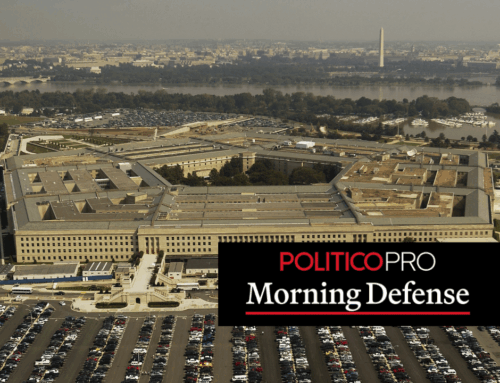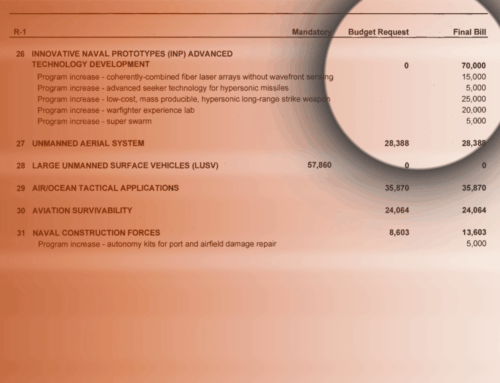The One Big Beautiful Bill Act, signed into law in July, has a variety of nicknames. Some call it the reconciliation bill, referring to the special budgetary procedure used by the Senate to pass the legislation. Others call it the “Trump tax bill.” As PoliticoPro reported in July, nicknames for individual provisions—such as the Net CFC Tested Income tax—have also sparked debate. In keeping with our nonpartisan tradition, TCS refers to the law by its given name, or OBBBA for short. Due to a technicality, however, the legislation does not formally have a name—a provision officially designating it as the “One Big Beautiful Bill Act” was removed from the final text to comply with Senate rules. Instead, it is described simply as “An Act … To provide for [budget] reconciliation pursuant to title II of [House Concurrent Resolution] 14.”
Regardless of what you call it, the passage of the OBBBA represents the latest phase of a troubling trend in Congress: the transformation of bill names from straightforward descriptions into political slogans. Once, the official titles of bills served as succinct explanations of their purposes. Now they’re crafted as marketing tools for supporters or rallying cries for opponents. The trend is bipartisan—members of Congress and presidents from both parties have embraced it—and has grown alongside political polarization.
In decades past, most bills passed by Congress didn’t have names at all. They were referred to simply as “An Act,” followed by a brief description of intent. When bills did have names, they were often generic and politically neutral. The Excise Tax Technical Changes Act of 1958, for example, did exactly what its name suggested. There were exceptions, such as the Communist Control Act of 1954 and the Juvenile Delinquency and Youth Offenses Control Act of 1961, but these were relatively rare. The tally is also skewed by annual appropriations bills, which tend to have unremarkable titles. Even accounting for these factors, “practical” names greatly outnumbered “political” names well into the early 2000s.
The 88th Congress (1963–1964) marked the start of a gradual rise in the number of bills with names, followed by a wave of acronym-based titles. At the same time, the share of bills with nonpolitical names began to drop. Some acronyms were memorable without being partisan: the Intermodal Surface Transportation Efficiency Act of 1991 (ISTEA, pronounced “ice tea”), the Transportation Equity Act for the 21st Century (TEA-21, “tea twenty-one”), and the Safe, Accountable, Flexible, Efficient, Transportation Equity Act: A Legacy for Users (SAFETEA-LU, “safety lieu”). While vague and not particularly descriptive, these names were clearly designed for memorability rather than political messaging. The acronym trend, however, was an early step toward today’s more overtly political titles.
In the modern Congress, politically charged names have become the norm. The percentage of unnamed bills has fallen sharply, and politically oriented names now rival nonpolitical ones in number. The era of bland or clever-but-neutral titles has given way to short, punchy catchphrases built for campaign speeches and cable news soundbites. The title you use for a bill now signals as much about your politics as a full policy statement would.
Both parties have contributed to the shift: the No Child Left Behind Act (2002), the Patient Protection and Affordable Care Act (2010), the Tax Cuts and Jobs Act (2017), and the Infrastructure Investment and Jobs Act (2021) are all examples.
For a time, “bipartisan” branding was in vogue—the Bipartisan Safer Communities Act (2022) and the “Bipartisan Infrastructure Law”, a nickname for the Infrastructure Investment and Jobs Act, come to mind. More recently, economic populism has been the hook, as with the Inflation Reduction Act (2022) and the draft OBBBA section titled “Working Families over Elites.”
Which brings us to today: one month since the passage of the OBBBA, a name believed to come from President Trump’s call for “one big beautiful bill” to advance his priorities. The choice was intentional, designed to make support or opposition to the president unmistakable. While OBBBA is the latest example, the climate in Congress suggests this naming trend will continue, no matter which party is in control.
If Congress wants to start rebuilding trust, it can drop the marketing gimmicks and call bills what they are. Titles should describe what legislation does—not sell it. Using slogans to hide major policy shifts is dishonest, deepens division, and turns lawmaking into theater. And stripping official names from opponents’ bills just to score points is beneath the institution. If lawmakers can’t agree on much, they should at least agree on this: stop playing games with bill names.










